If y=x^x then find dy/dx umarbojhgar umarbojhgar Math Secondary School answered If y=x^x then find dy/dx 1 See answer Advertisement Advertisement umarbojhgar is waiting for your help Add yourNeither the real function nor accordingly its derivative can be defined When the function itself cannot be defined its derivative by implicit differentiation is meaningless 1 for the correct answer You might consider showing the analysis behind the observation that xAnswer (1 of 5) Answer 2, 3 Solution Given y = 2x³ 3x² 36x 7 (1) Differentiating with respect to x, dy/dx
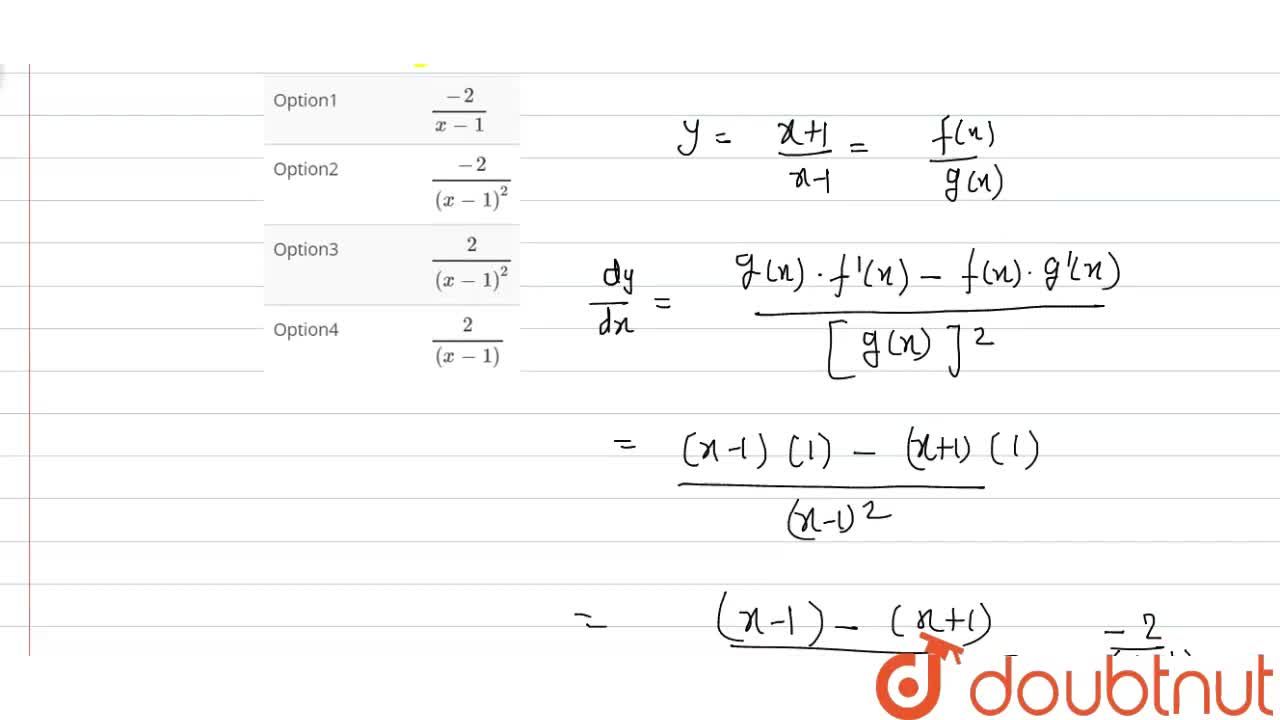
अगर Y X 1 X 1 फ र क य ह Dy Dx क बर बर
If y=x 1/x then find dy/dx at x=1
If y=x 1/x then find dy/dx at x=1-Solve your math problems using our free math solver with stepbystep solutions Our math solver supports basic math, prealgebra, algebra, trigonometry, calculus and moreTranscript the question says that if Y is equal to under root of 1 cos 2x upon 1 cos 2x and X belongs to 025 Union pi by 2 by then you find DY by DX is equal to under root of 1 cos 2x upon 1 cos 2x and we know that the formula of cos2x is equal to 2 cos square x 1 2 cos square x 1 and from here cos 2x 1 is 2 cos square x is our




Example 25 Find Dy Dx If Y Sin Y Cos X Chapter 5 Class 12
Davneet Singh is a graduate from Indian Institute of Technology, Kanpur He has been teaching from the past 12 years He provides courses for Maths and Science at TeachooIf Y 3x 1 3x 1 Sin X Loge 1 X X 1 Then At X 0 Dy Dx Is Equal To If Y Cos 2 X Sec 2 X Then If Y Eq X X2 Plus X3 X4 Then The Value Of X Will Be If y is a function of x and log(x y) = 2xy, then the value of y'(0) is If y sec x tan x x 2 y = 0, then dy/dx = If Welcome to Sarthaks eConnect A unique platform where students can interact with teachers/experts/students to get solutions to their queries Students (upto class 102) preparing for All Government Exams, CBSE Board Exam, ICSE Board Exam, State Board Exam, JEE (MainsAdvance) and NEET can ask questions from any subject and get quick answers by
Solve your math problems using our free math solver with stepbystep solutions Our math solver supports basic math, prealgebra, algebra, trigonometry, calculus and moreQ Find and d²y then simplify whenever possible dx dx² 1) у %3D 3t5 — 2t x = 4t3 2) y = t3 – 7 x = t² A As per the request of student 4th and 5th answer has Textbook solution Answer from CBSE Board Exam Mathematics Read on Answer 50 /5 5 Brainly User Answer y = logx^ x y = x log x ( bcz log m^ n = n log m) then , dy / dx = x { d /
Please find below the solution to the asked query We have y = xx 2 = x 1x As quantity inside mod becomes 0 at x = 1, hence function will be nondifferentiable at x = 1 Similarly function will not be differentiable at x = 0 Hence dy dx does not exist at x = 1 Hope this information will clear your doubts about this topicAnswer (1 of 43) If y=x , then to find dy/dx,know that dy/dx is nothing but how much y is changing with respect to x , since y=x , means there is a linear change from x to y, So change in y is same as change in x , so (Change in y)/(change in x) = Ace 126K answers 629M people helped The function dy/dx when x is 1 is (y1)/2 Given the function To get the differential of the function, we need to differentiate the function implicitly to have;
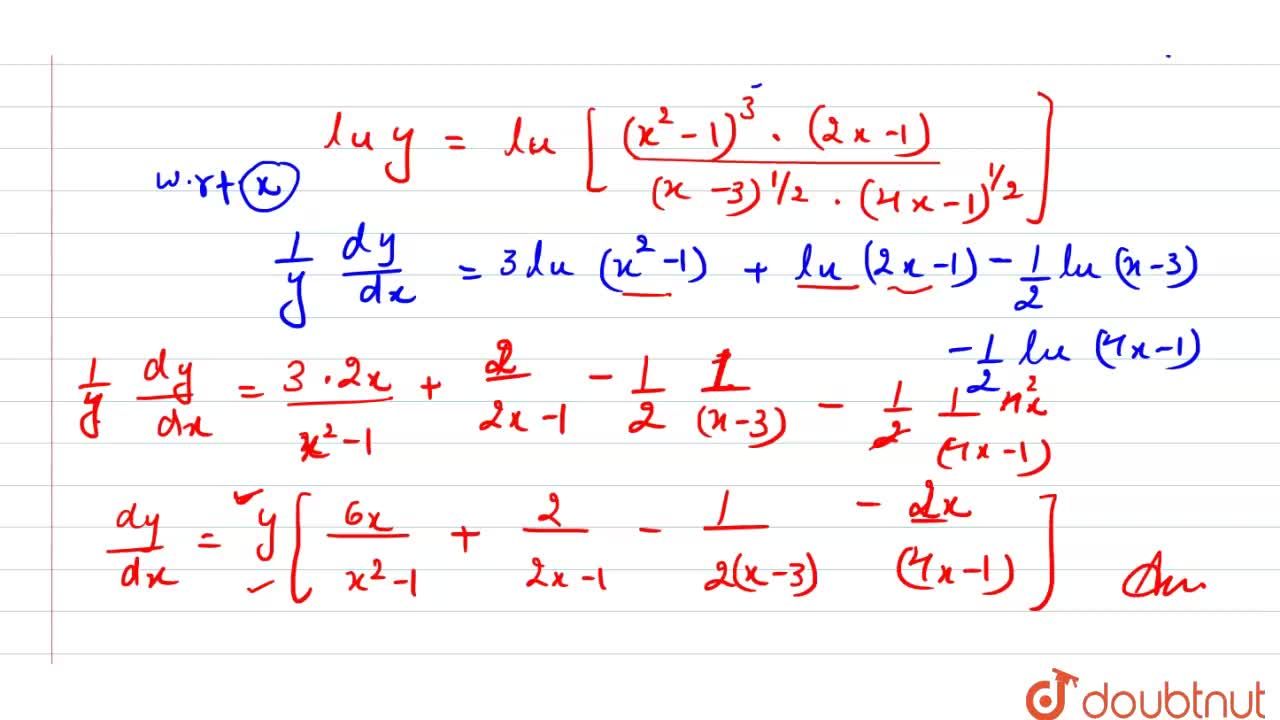



Find Dy Dx Y X 2 1 3 2x 1 Sqrt X 3 4x 1




If Y 1 X 1 X 2 1 X 4 1 X 2n Then The Value Of Dydx At X 0 Is
Find dy/dx y=x^ (1/x) y = x1 x y = x 1 x Differentiate both sides of the equation d dx (y) = d dx (x1 x) d d x ( y) = d d x ( x 1 x) The derivative of y y with respect to x x is y' y ′ y' y ′ Differentiate the right side of the equation Tap for more steps Use theSolution for 1 x 1 then find dy when – 1KCET 14 If y =(1x)(1x2)(1x4), then (dy/dx) at x=1 is (A) 28 (B) 0 (D) 1 Check Answer and Solution for above question from Mathematics in




Example 33 Find Dy Dx If Y X X Y X X A B Teachoo



If Y X X 5 Then Prove That X Dy Dx Y 1 Y Sarthaks Econnect Largest Online Education Community
Y = d d x ( sin x × log e x) In this differentiation problem, the variable y represents a function in x Hence, it can be differentiated with respect to x and do not think that y is a constant Therefore, the function y can be differentiated by the derivative rule of logarithms 1 y × d y d x = d d x ( sinLet y =(log x) x x log x Also, let u =(log x) x and v = x log x ∴ y = u v `⇒"dy"/"dx" = "du"/"dx""dv"/"dx"` (1) u = (logx) x ⇒ log u = log(log x) xIf y=x x, then find dxdy Easy Solution Verified by Toppr We have, y=x x Taking log on both the sides, we get logy=xlogx On differentiating wrt x, we get y1 dxdy = xx logx ⇒ dxdy =yylogx ⇒ dxdy =x x(1logx) (∵y=x x) Video Explanation Solve any question of Continuity and Differentiability with Patterns of problems >
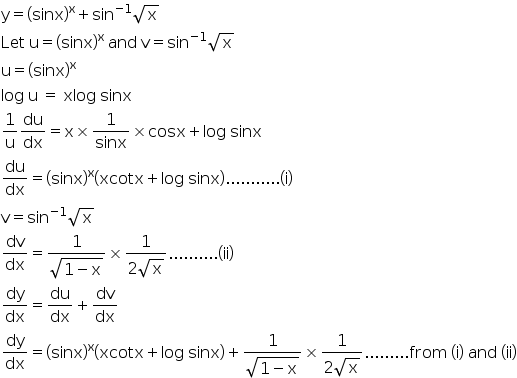



If Y Sinx X Sin 1 X 1 2 Find Dy Dx Explain In Great Detail Do Not Go Shortcut Mathematics Topperlearning Com W0t3auii




1 X 4 1 Y 4 A X 2 Y 2 Then D Y D X X Y 1 Y 4 1 X 4
Nov 19,21 If y=log x then find dy_dxx=1?If x 1, x 2, x 3 and y 1, y 2, y 3 are both in GP with the same common ratio, then the points (x 1, y 1) , (x 2, y 2) and (x 3, y 3) If x 2/3 y 2/3 = y 2 /b 2xy/h = 0 represents a pair of straight lines and slope of one line isWelcome to Sarthaks eConnect A unique platform where students can interact with teachers/experts/students to get solutions to their




If Y X 1 3 X 1 2 Then Find Dy Dx At X 81




Ex 9 4 12 Find Particular Solution X X2 1 Dy Dx 1 Y 0
Divide both sides by 1 x to have;To ask Unlimited Maths doubts download Doubtnut from https//googl/9WZjCW If y= 1/x then dy/dx isFind the value of $\frac{df^{1}}{dx}$ of the following function Hot Network Questions Can we use formal groups to recover Lietheoretic representation theory in characteristic p?




Show That The General Solution Of The Differential Equation Dy Dx Y 2




If Y Log E 3x X 4 X 3 2 3 Then Find Dydx
EduRev B Com Question is disucussed on EduRev Study Group by 125 B Com StudentsSolution For If y=(1x)(1x^2)(1x^4)(1x^(2n)), then find (dy)/(dx)a tx=0 Class 11 Math Calculus Limits And DerivativesFind dy/dx if y= xe^x / x e^x 1 See answer Advertisement Advertisement yash15C is waiting for your help Add your answer and earn points svptxb66sohams svptxb66sohams ost price by 25% and then offers a 15% discount If a customer buys a motorcycle for 65,6,
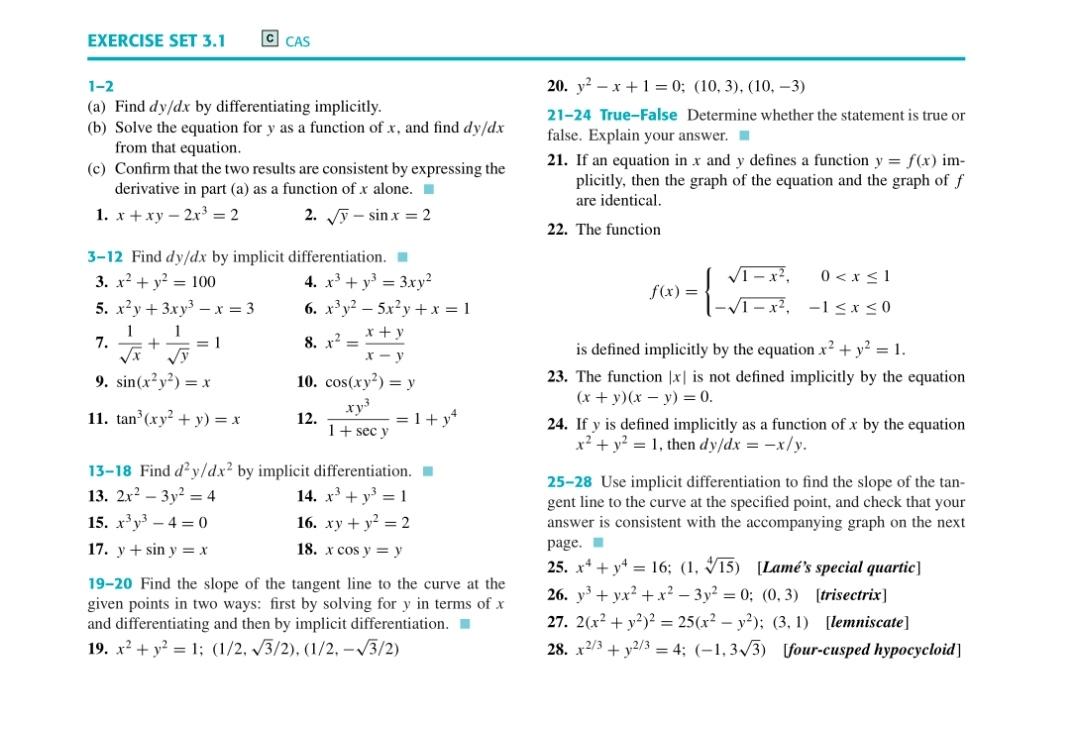



Solved Section 3 1 6 9 16 25 Section 3 2 7 11 15 Chegg Com
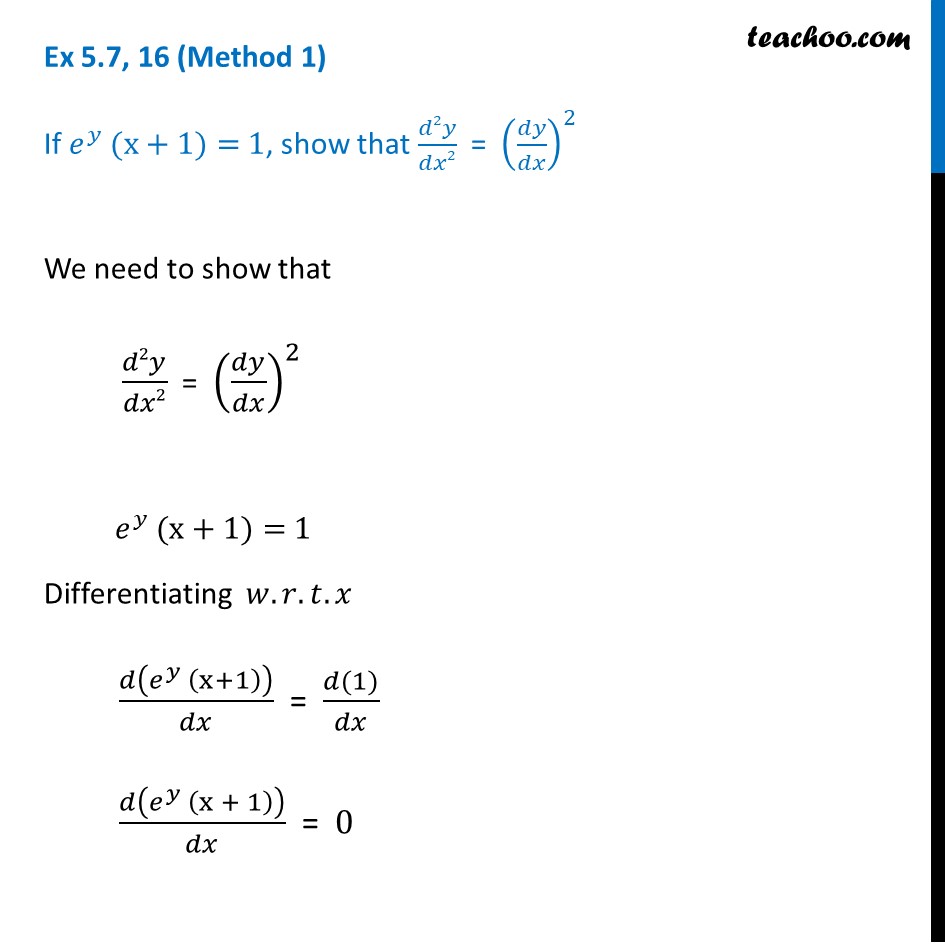



Ex 5 7 16 If E Y X 1 1 Show That Y Y 2 Teachoo
If y =1cosθ , x = 1sinθ , then dy/dx at 0 =π/4 is Maharashtra State Board HSC Science (General) 12th Board Exam Question Papers 231 Textbook Solutions MCQ Online Tests 73 Important Solutions 3704 Question Bank Solutions Concept Notes & Videos 737 Time Tables 24Till infinite Find dy/dx Please give the solutionWrite in the form y=x^y since x^x^x^x is till infinite, we can consider it to be y, then take l Book a Trial With Our Experts ×Calculus Find dy/dx y=1/x y = 1 x y = 1 x Differentiate both sides of the equation d dx (y) = d dx ( 1 x) d d x ( y) = d d x ( 1 x) The derivative of y y with respect to x x is y' y ′ y' y ′ Differentiate the right side of the equation Tap for more steps
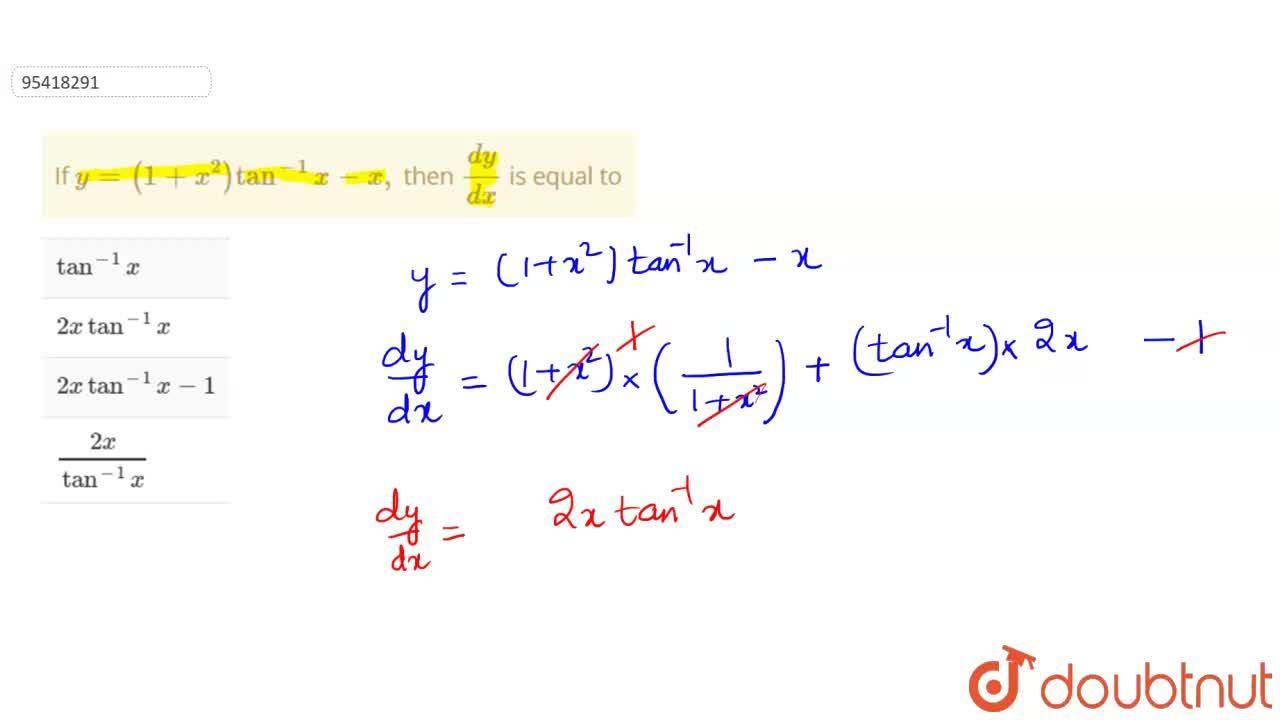



If Y 1 X 2 Tan 1 X X Then Dy Dx Is Equal To



D Dx Formula
Let y=x^{x} ldots(i)Taking logarithms on both sideslog y=log x^{x}=x log xDifferentiating (i) with respect to x,frac{1}{y} cdot frac{dy}{dx}=frac{d}{dx}(x log xWelcome to Sarthaks eConnect A unique platform where students can interact with teachers/experts/students to get solutions to their queries Students (upto class 102) preparing for All Government Exams, CBSE Board Exam, ICSE Board Exam, State Board Exam, JEE (MainsAdvance) and NEET can ask questions from any subject and get quick answers by if `y=x^lnx tan^1x` then find `(dy)/(dx)` at `x=1`` Updated On This browser does not support the video element Get Answer to any question, just click a photo and upload the photo and get the answer completely free,




If Y Sec 1 X 2 1 X 2 1 Then Dy Dx Youtube




If Y Tan 1 2x 1 X 2 Then Find Dy Dx
answered by Kaina (305k points) selected by Lakhi Best answer Correct option is C(1 1 x)x ( 1 1 x) x {log(x 1) − x x 1 } { l o g ( x 1) − x x 1 } Given y = log (1 1 x)x ( 1 1 x) x Taking log both sides we get ← Prev Question Next Question →Get an answer for 'Find dy/dx if y=1(1/u) and u=1/(x1), using the chain rule with y as the composite function' and find homework help for other Math questions at eNotesIf y = x x and x > 0 then ln y = ln (x x) Use properties of logarithmic functions to expand the right side of the above equation as follows ln y = x ln x We now differentiate both sides with respect to x, using chain rule on the left side and the product rule on the right y '(1 / y) = ln x x(1 / x) = ln x 1 , where y ' = dy/dx Multiply both sides by y y ' = (ln x 1)y Substitute y by x
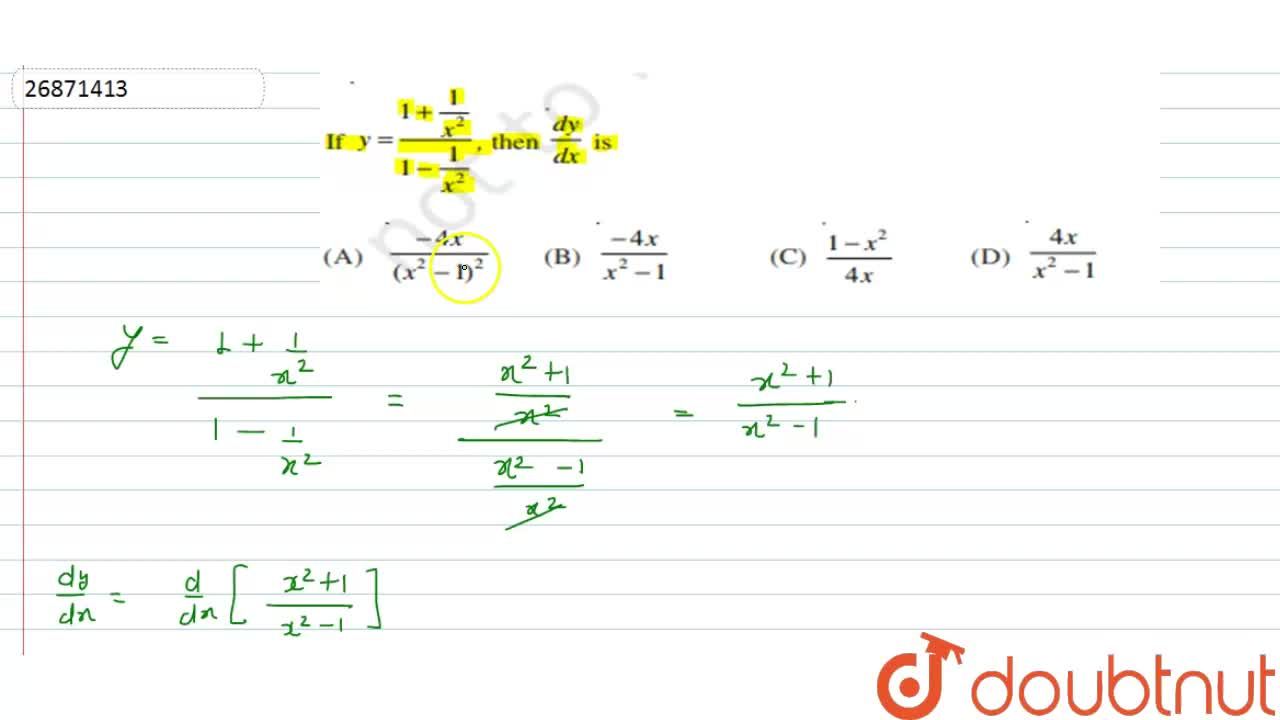



If Y 1 1 X 2 1 1 X 2 Then Dy Dx Is Equal To
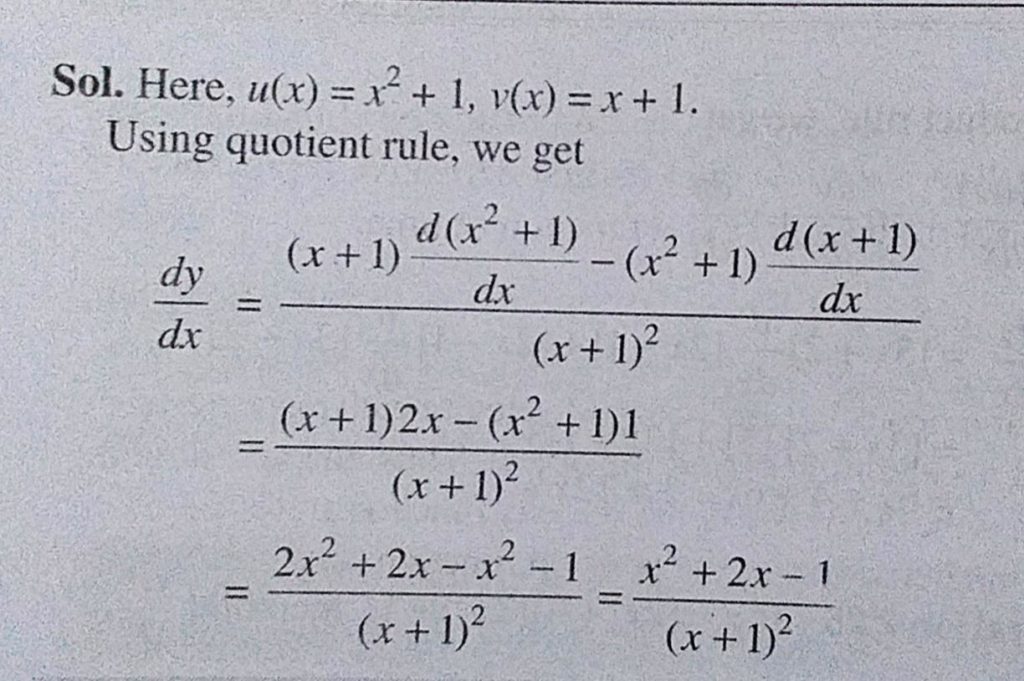



If Y X 2 1 X 1 Then Find Dy Dx Sahay Sir
If y=xx^{2} , then find frac {dy}{dx} at x=1 Snapsolve SnapsolveY= (x3) ² differentiating w rt x using power rule along with applying chain rule as needed, dy/dx = d/dx (x3)^2 => dy/dx = 2 (x3)^ (2–1) *d/dx (x3) => dy/dx = 2 (x3)* (10) = 2 (x3) 370 views View upvotes Related Answer Divya Dubey , Teacher Answered 1 year ago Author has 197 answers and 699K answer viewsIf X 2 Y 2 1 Then If X 3 2x 2y 2 5x Y 5 0 And Y X 1 1 Then If X 8 N 7n 1 N Belongs To N And Equal To 49 N 1 N Belongs To N Then If X And Y Are Acute Angles Such That Cos X Cos Y 3 2 And Sin X Sin Y 3 4 Then If X And Y Are Two Events That P X By Y Equals 1 By 2 P Y By X Equals 1 By 3 And P X Intersection Y Equals 1 By 6 Then Which Of The




Ex 5 7 12 If Y Cos 1 X Find D 2y Dx 2 In Terms Of Y Alone




Ex 5 5 16 Find Derivative Of F X 1 X 1 X2 1 X4 1 X8
In Calculus language, it means "Take the derivative of y with respect to x at x = 0" But I'm guessing that didn't help So what it is asking, is to find the derivative of a function f (x) and plug in x So for example in y = x^2 x, the derivative is dy/dx = 2x 1 Plug in 0 for x, giving you dy/dx = 1 So the slope is 1 at x = 0, asWBJEE 16 If y=(1x)(1x2)(1x4) (1x2n) then the value of ((dy/dx)) at x=0 is (A) 0 (B) 1 1 (D) 2 Check Answer and Solution for above quIf y = cos^1((1x)/(1x)) then find dy / dx




Example 25 Find Dy Dx If Y Sin Y Cos X Chapter 5 Class 12




If Y 1 X 2 X 1 Y 2 1 Prove That Dydx 1 Y 21 X 2
ex 53, 11 find 𝑑𝑦/𝑑𝑥 in, 𝑦 = cos–1 ( (1− 𝑥^2)/ ( 1 𝑥2 )) , 0 < x < 1 𝑦 = cos–1 ( (1− 𝑥^2)/ ( 1 𝑥2 )) putting x = tan θ y = 〖𝑐𝑜𝑠〗^ (−1) ( (1−tan2 𝜃)/ (1 tan2 𝜃)) y = cos−1 (cos 2𝜃) 𝑦 =2θ putting value of θ = 〖𝑡𝑎𝑛〗^ (−1) 𝑥 𝑦=2 (〖𝑡𝑎𝑛〗^ (−1) 𝑥) (cos2θ " =" (1 − tan2 𝜃)/ (1 tan2 𝜃)) since x = tan θ ∴ 〖𝑡𝑎𝑛〗^ (−1)If y = tan^1(x^21/x^21) then find dy/dx at x = 1 dxdy Maths Limits and Derivatives Get an answer for '#2 What is dy/dx if y = log(x1/x)' and find homework help for other Math questions at eNotes




If Y 1 Root X X 1 2 Then Find Dy Dx Sahay Sir




अगर Y X 1 X 1 फ र क य ह Dy Dx क बर बर
Y = ∫ f (x) dx C, which gives general solution of the differential equation Example Solve the given differential equation d y d x = x x 2 1 Solution We have, d y d x = x x 2 1 dy = x x 2 1 dx Integrating both sides, we get ∫ dy = ∫ x x 2 1 dx dy = 1 2 2 x x 2 1 dx 7c Find y given dy/dx Integration Mini Video Lecture This is a common integral calculus question, where we are given an expression for dy/dx and x and yvalues, and we need to find ans expression for y If `y="sec"(tan^(1)x),` then `(dy)/(dx)` at `x=1` is equal to `1/(sqrt(2))` (b) `1/2` (c) 1 (d) `sqrt(2)` asked in Differentiation by VaibhavNagar (933k points) class12;



1



If Y X 2 1 Log 1 X 1 1 X 2 Find Dy Dx Sarthaks Econnect Largest Online Education Community
I'll start with the second one for you Take the natural logarithm of both sides Now for the second I would differentiate term by term Let t = xy and u = yx Then lnt = ln(xy) and lnu = ln(yx) It follows that 1 t = dy dx lnx → xy(lnx( dy dx) y
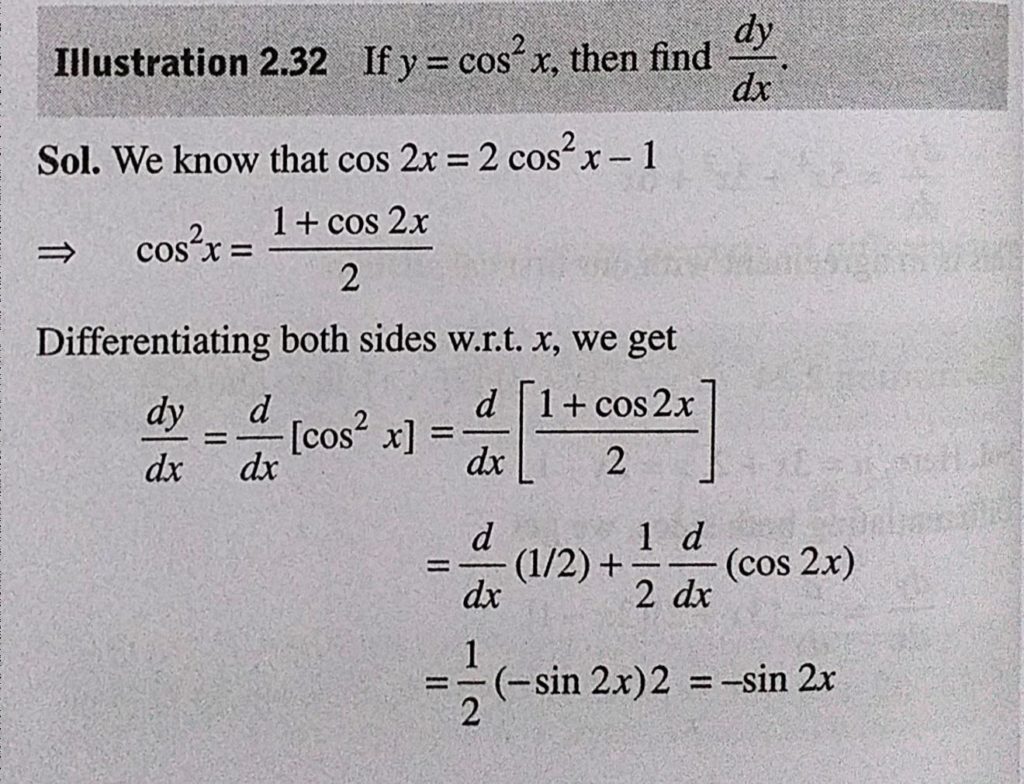



If Y Cos 2 X Then Find Dy Dx Sahay Sir
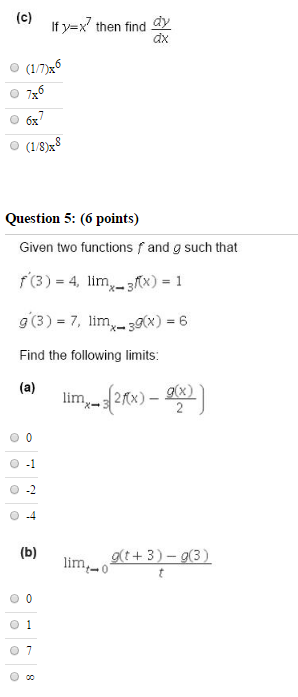



Solved If Y X 7 Then Find Dy Dx 1 7 X 6 7x 6 6x 7 Chegg Com
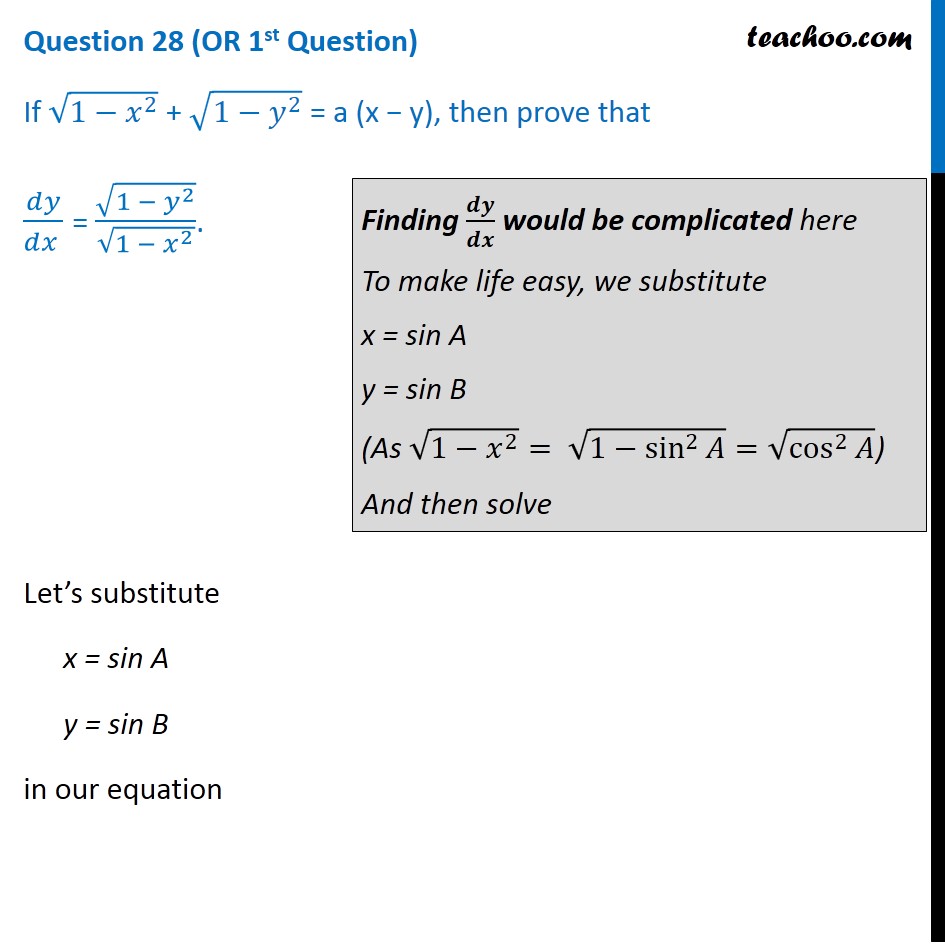



If 1 X 2 1 Y 2 A X Y Then Prove That Dy Dx




If Y X 1 X Prove That 2x Dy Dx X 1 X Brainly In



How To Find Dy Dx Of The Function Y X 1 X 2 X 1 2 Quora




If Y Sec Tan 1 X Then Dy Dx At X 1 Is Equal To Youtube
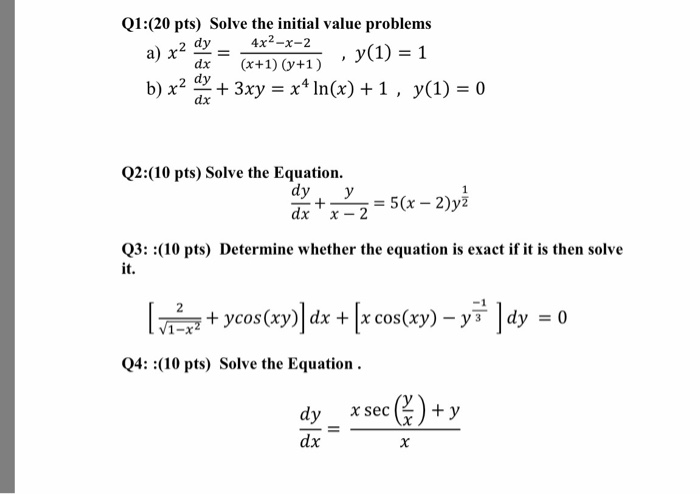



Solved Solve The Initial Value Problems X 2 Dy Dx 4x 2 Chegg Com




Misc 13 Find Dy Dx If Y Sin 1 X Sin 1 Root 1 X2 Miscellaneous




If Log 1 X 2 X Y 1 X




If Y 1 X Then Dy Dx Is Youtube
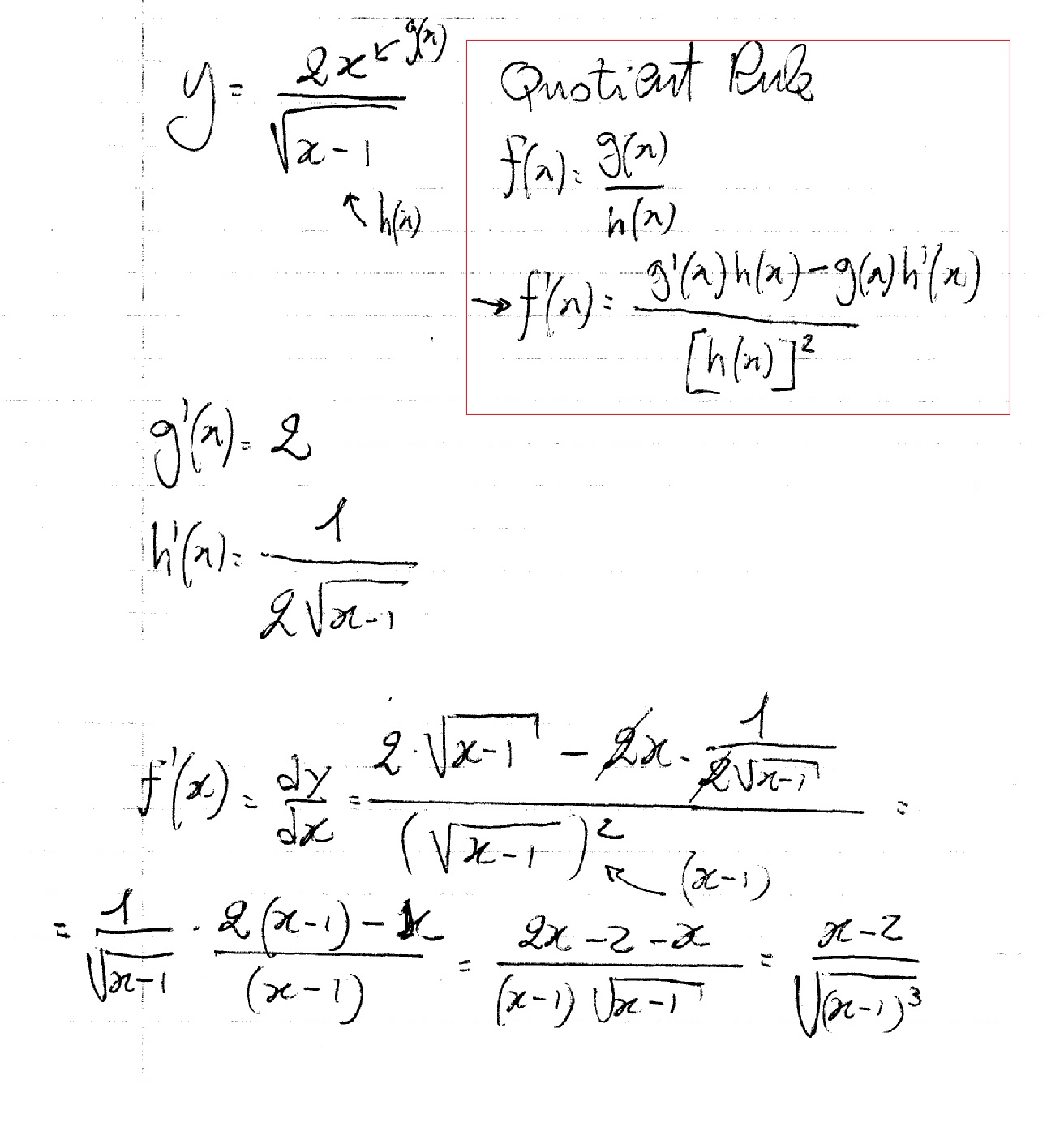



How Do You Find Dy Dx For Y 2x Sqrt X 1 Socratic
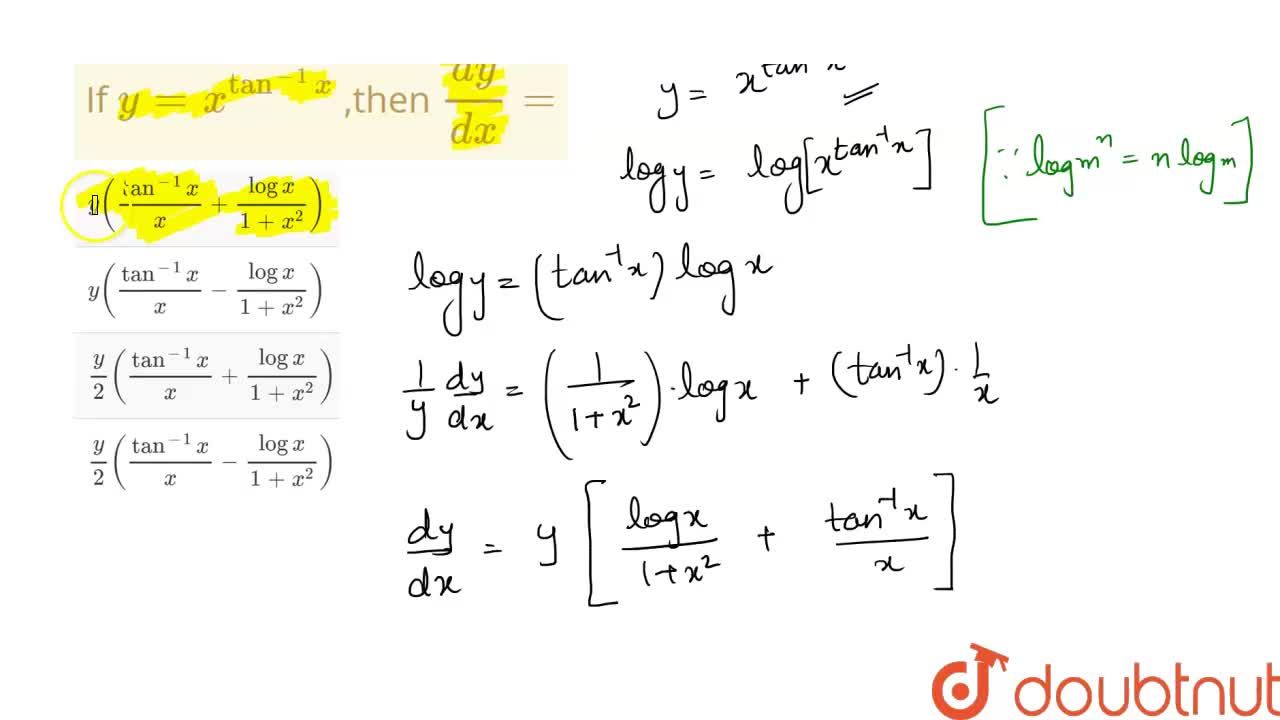



Y Tan 1 X X Logx 1 X 2




Ex 5 5 12 Find Dy Dx Xy Yx 1 Class 12 Cbse Ncert




If Y Tan 1 Sec X Tan X Then Dy Dx Is Equal To Youtube



What Is The Solution Of This Differential Equation X 1 Dy Dx Y E 3x X 1 2 Quora




Chapter Differentiation Questions 1 Find The Value Of Answers 1 2 If F X 2 2x 5 Find F 2 Answers 2 3 If Y 2s And X 2s 1 Ppt Download
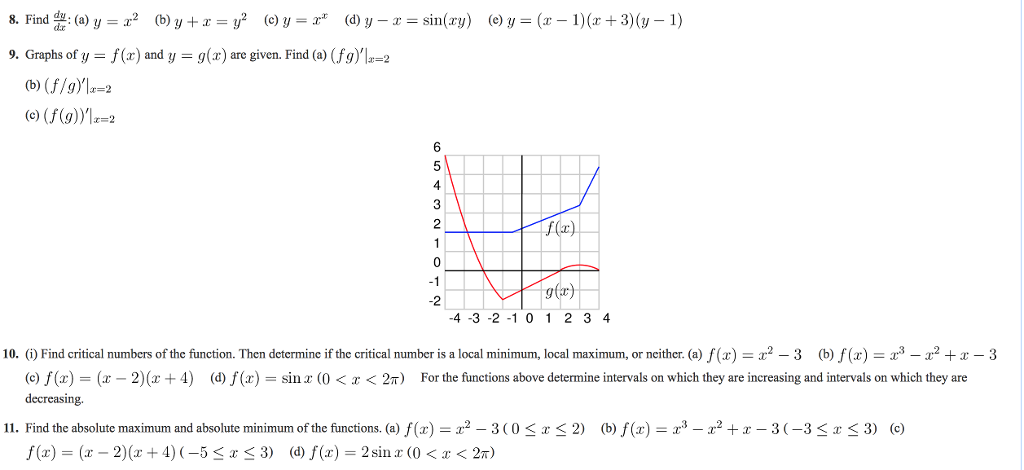



Solved Find Dy Dx A Y X 2 B Y X Y 2 C Y X X Chegg Com
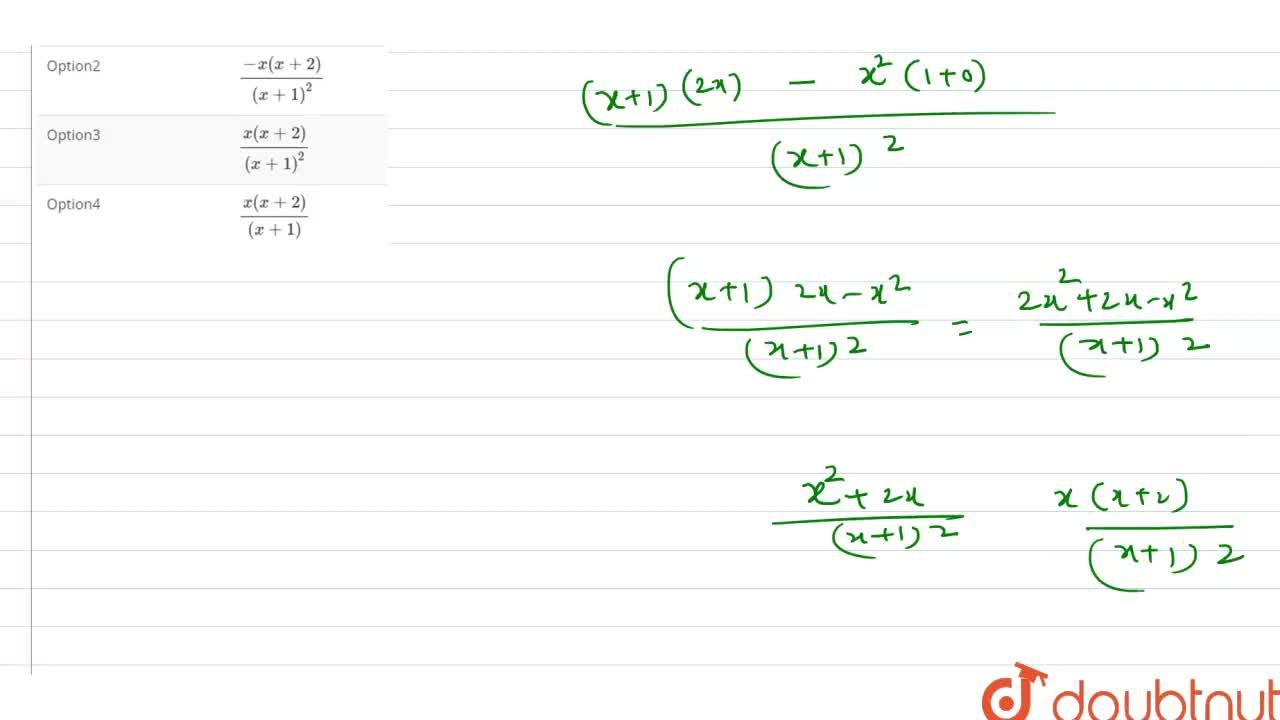



If Y X 2 X 1 Then Dy Dx Is



How To Get The Special Solution Of This Differential Equation Y Xdy Dx 2 1 X 2 Dy Dx Where X 1 Y 1 Quora



If Y X 1 X Prove That 2x Dy Dx X 1 X Sarthaks Econnect Largest Online Education Community




If Y X X2 1 1 2 M Then Show That X2 1 D2y Dx2 X Dy Dx M2y 0 Mathematics Topperlearning Com 6jd9kell




If Y Log X Logx Then Dy Dx Youtube




If X 1 Y 2 Y 1 X 2 1 Prove That Dydx 1 Y 2 1 X 2




If Y Xcot X 2x2 3 X2 X 2 Find Dy Dx Mention Each And Every Step Mathematics Topperlearning Com Palrsebb



1




If Y Xx Prove That D2y Dx2 1 Y Dy Dx 2 Y X 0 Explain In Great Detail Mathematics Topperlearning Com X4m0m1ww




If X Y Y X Then Find Dydx




Ex 6 3 2 Find Slope Of Tangent Y X 1 X 2 At X 10




Ex 5 7 16 If E Y X 1 1 Show That Y Y 2 Teachoo




If Y Cos M Cos 1 X Show That 1 X 2 Y X Y M 2 Y 0
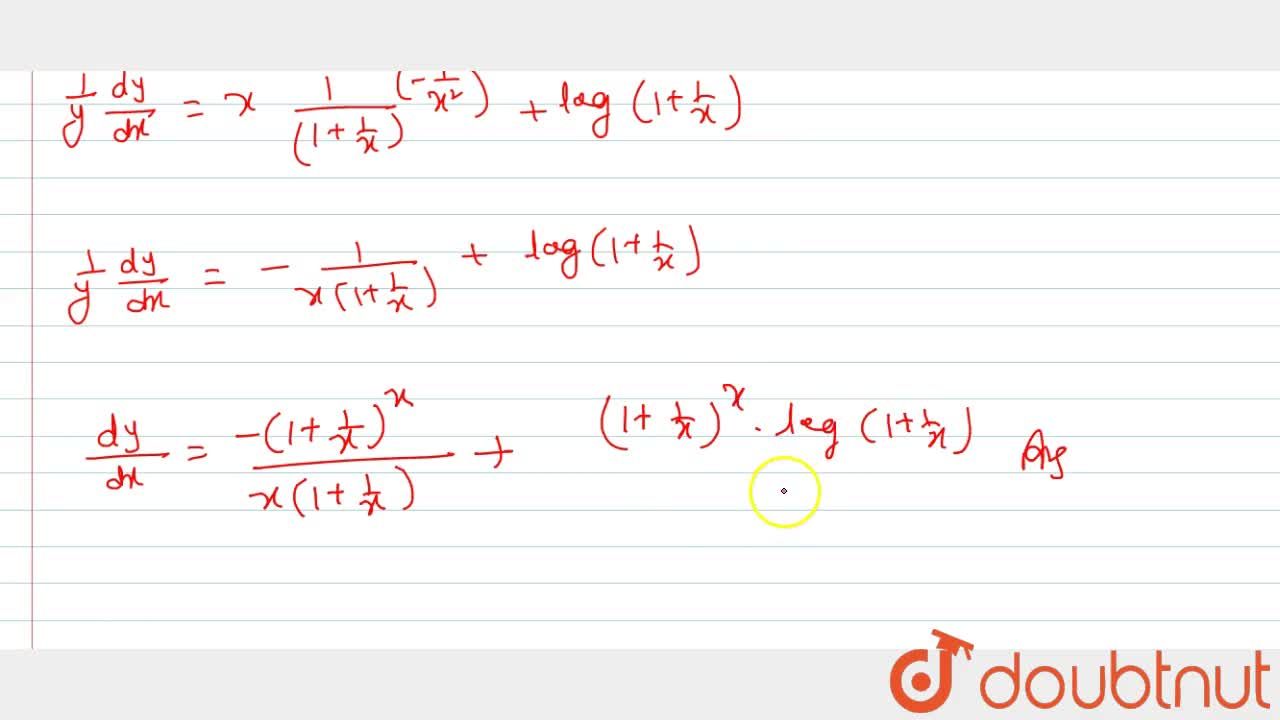



Find Dy Dx Of Y 1 1 X X




If Y Sqrt X 1 Sqrt X 1 Prove That X 2 1 D 2y Dx 2 X Dy Dx Y 4 0 Youtube
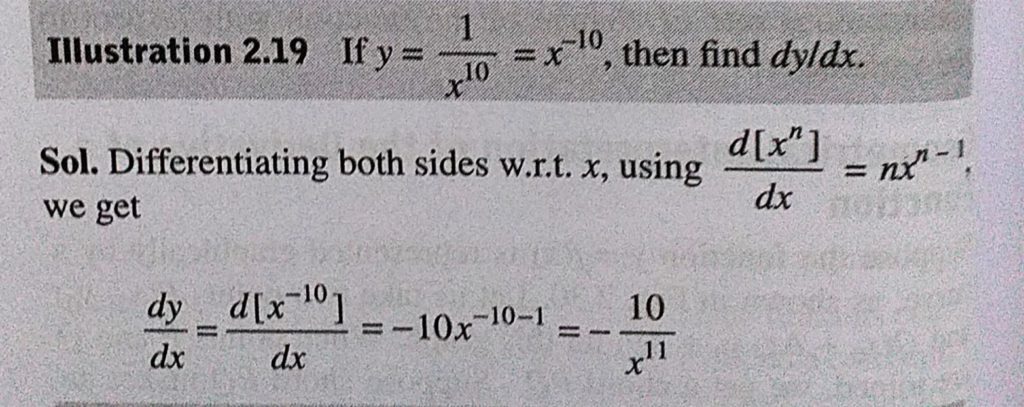



If Y 1 X 10 X 10 Then Find Dy Dx Sahay Sir




If Y Sqrt 1 X 1 X Then Dy Dx Equals Youtube



D Dx 1 X
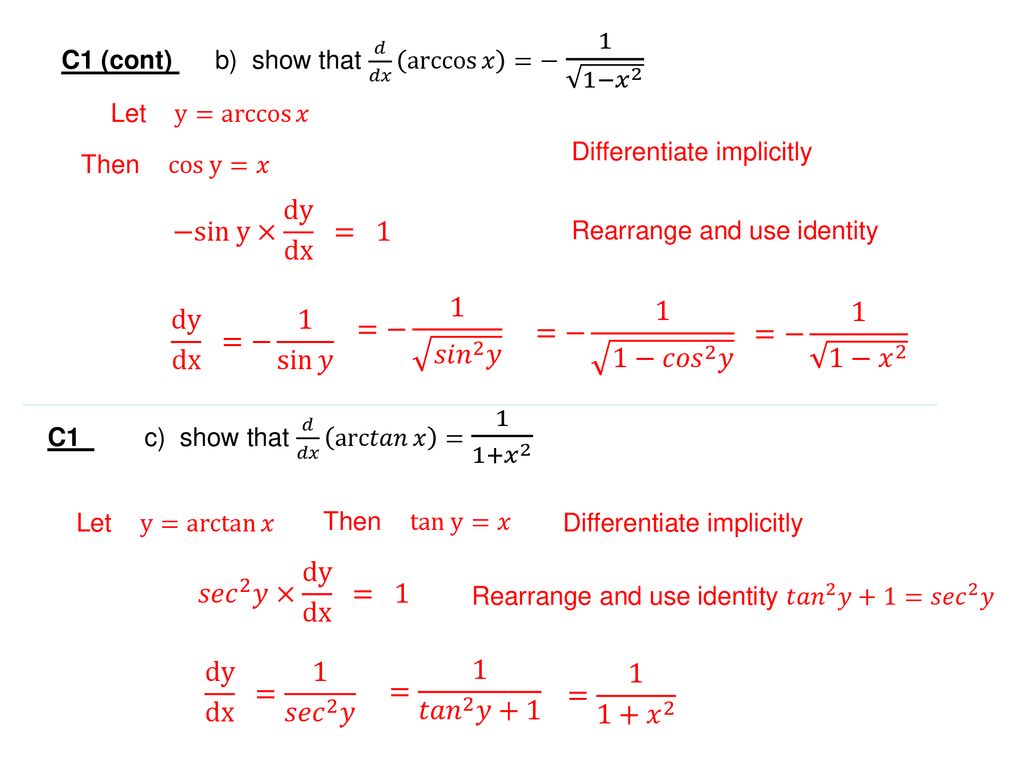



Methods In Calculus Ppt Download




If Y Tan 1 1 X 2 1 X 2 1 X 2 1 X 2 X 2 1 Then Find Dydx




If Ylog X X Y Prove That Dydx Logx 1 Logx 2




If Y Sqrt X 1 Sqrt X Then Dy Dx At X 1 Is Equal To Youtube
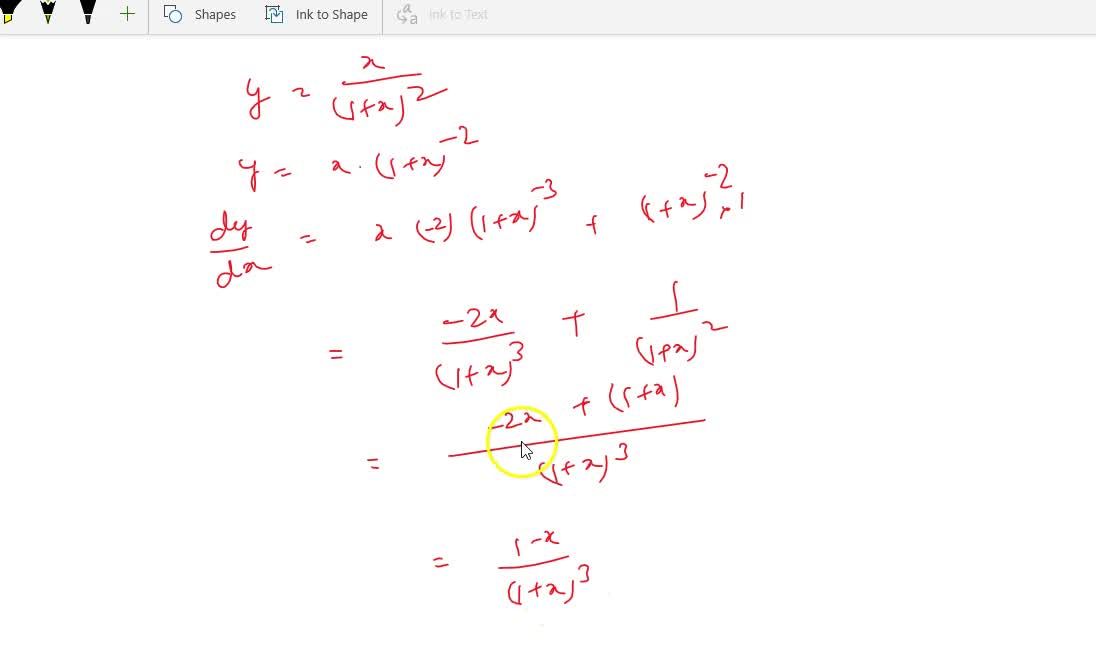



Find Dy Dx If Y X 1 X 2




If Y Sqrt X 1 Sqrt X Prove That 2x Dy Dx Y 2sqrt X Youtube




If Y 3x 2 2x Then Find Dy Dx Youtube
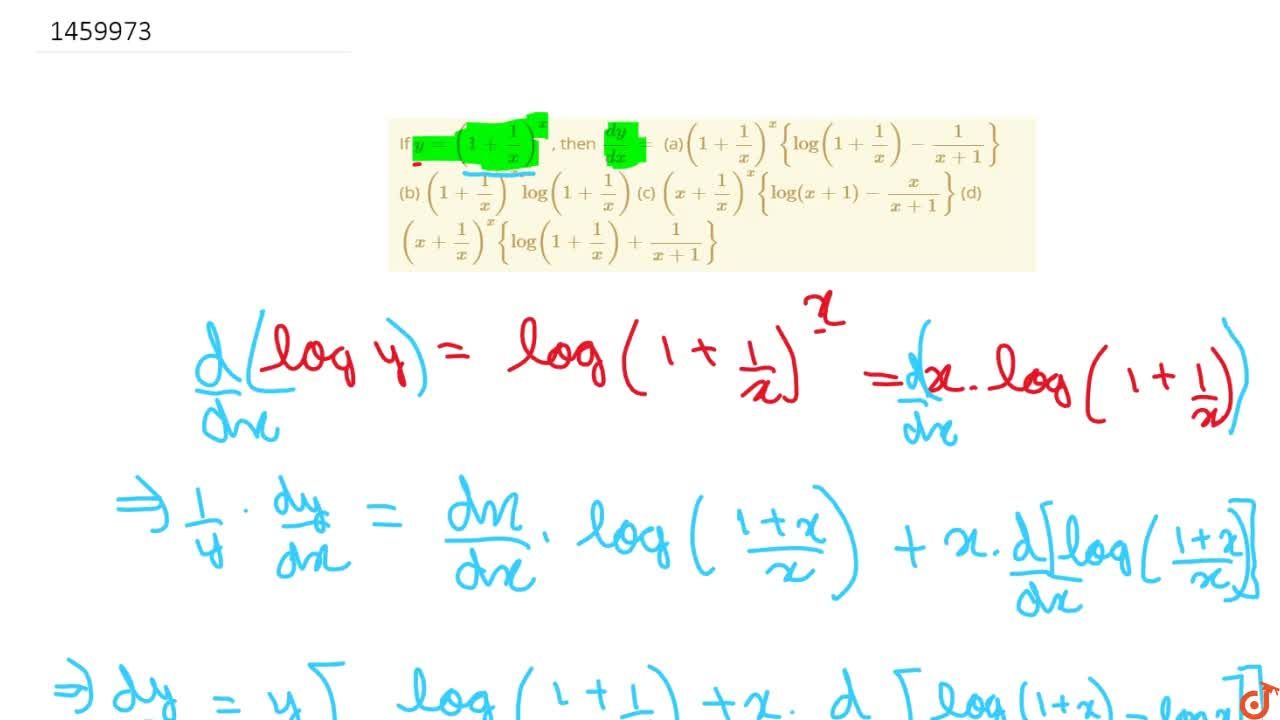



If Y 1 1 X X Then Dy Dx A 1 1 X X Log 1 1 X 1 X 1 B 1 1 X Xlog 1 1 X C X 1 X X Log X 1 X X 1 D X 1 X X Log 1 1 X 1 X 1




If Y Log Sinx Then Find Dy Dx




If Xy Log X Y 1 Prove That Dydx Y X 2y X Y X Xy 2 X Y



If Tan 1 X Y Y Cot X 1 Then Find Dy Dx Sarthaks Econnect Largest Online Education Community



If X 1 Y Y 1 X 0 1 X 1 Prove That Dy Dx 1 1 X 2 Sarthaks Econnect Largest Online Education Community



Find Dy Dx At X 1 Y Pi 4 If Sin 2 Y Cos Xy K Sarthaks Econnect Largest Online Education Community




Misc 23 If Y Ea Cos 1 X Show 1 X2 D2y Dx2 X Dy Dx
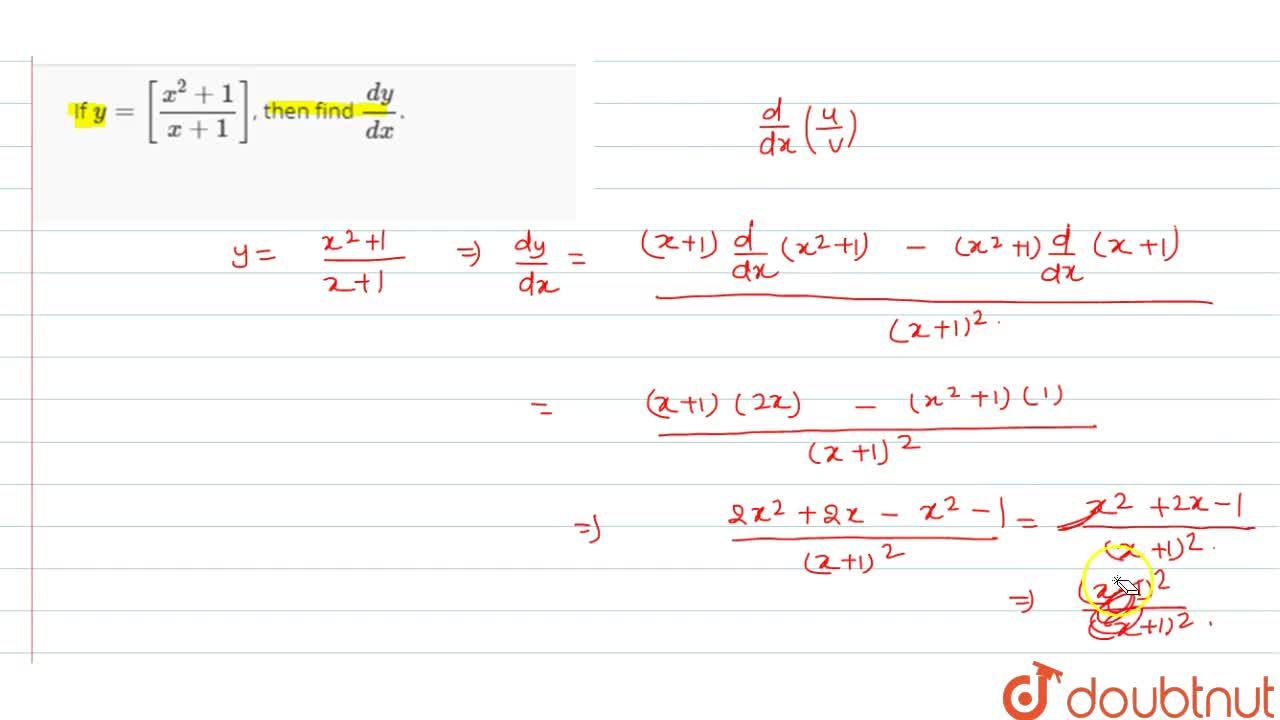



If Y X 2 1 X 1 Then Find Dy Dx




If Y X Is The Solution Of Dy Dx X 2 1 Y 2 Y 0 2 Then Y 3 Homeworklib




Example 41 If Y Sin 1 X Show That 1 X2 D2y Dx2 X Dy Dx 0




Ex 5 5 15 Find Dy Dx Of Xy E X Y Class 12 Ex 5 5



If Xy E X Y Then Prove That Dy Dx Log X 1 Log X 2 Sarthaks Econnect Largest Online Education Community
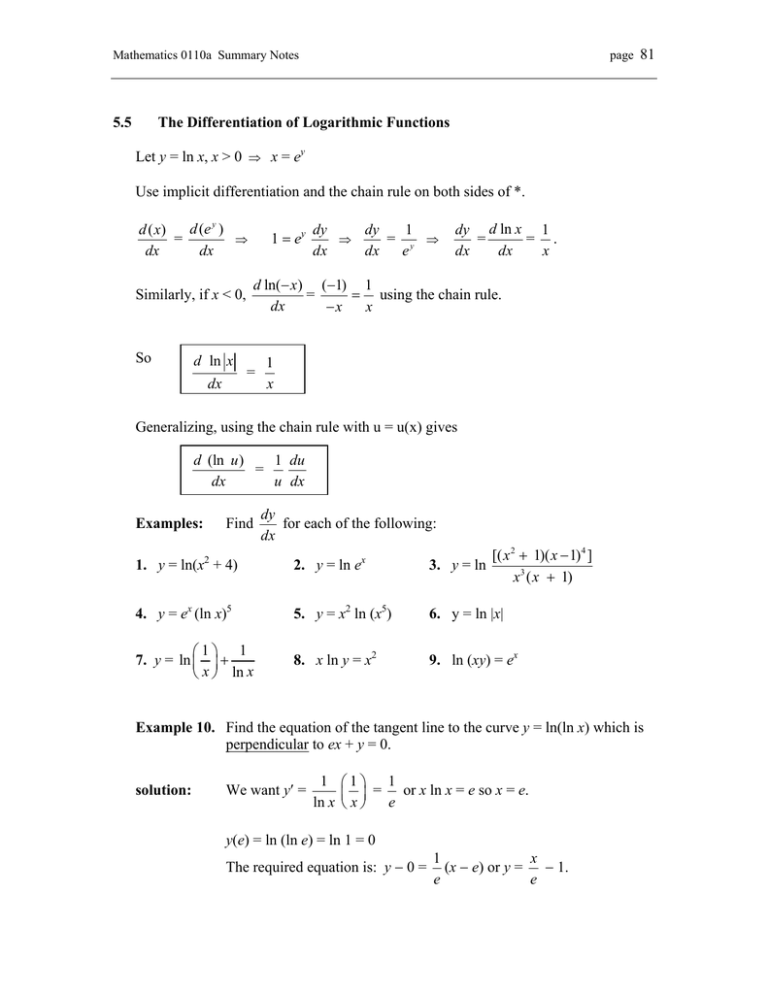



5 5 The Differentiation Of Logarithmic Functions Let Y Ln X X 0




Find Dy Dx Of Function Xy Yx 1 Mathematics Shaalaa Com
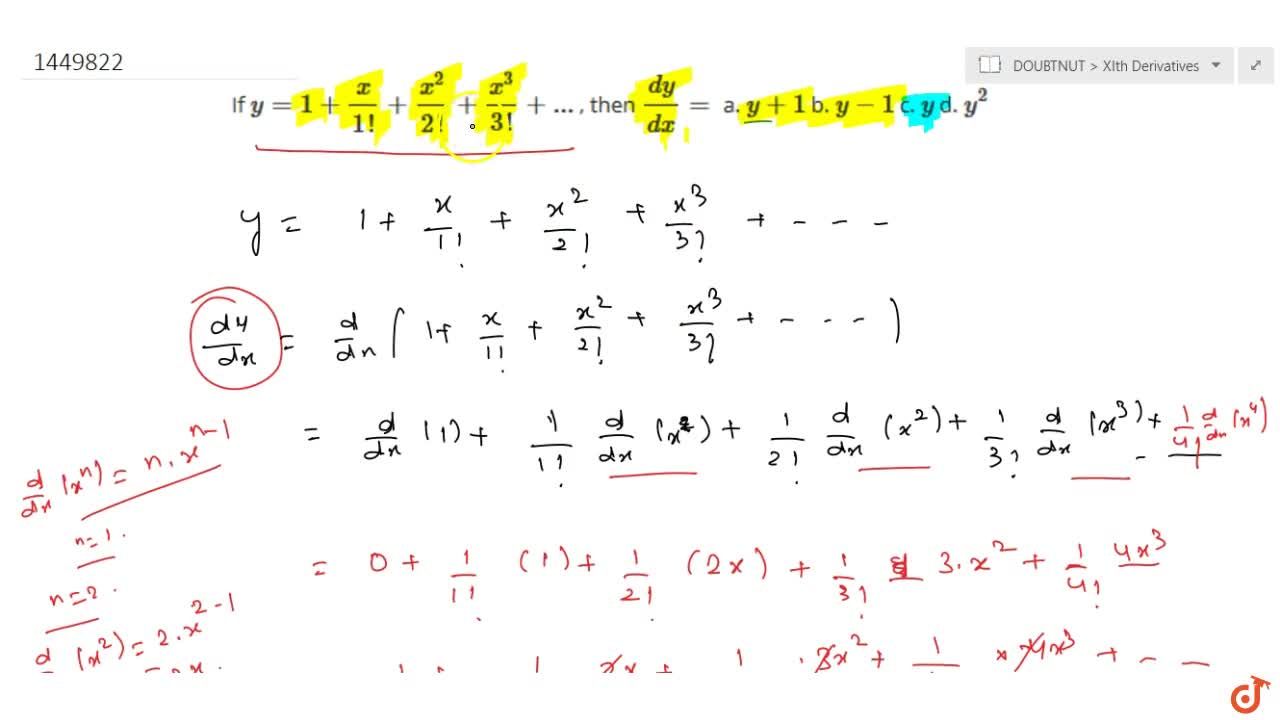



If Y 1 X 1 X 2 2 X 3 3 Then Dy Dx A Y 1 B Y 1 C Y D Y 2




Ipe Material Notes




If Y X X X Then Find Dy Dx



How To Find Dy Dx Of The Function Y X 1 X 2 X 1 2 Quora




Misc 14 If X Root 1 Y Y Root 1 X 0 Prove Dy Dx Miscellaneou



If X Y E X Y Show That Dy Dx Logx Log Xe 2 Sarthaks Econnect Largest Online Education Community




If X 1 Y Y 1 X 0 Then Prove That 1 X 2 Dydx 1 0



If Y X X Prove That D 2y Dx 2 1 Y Dy Dx 2 Y X 0 Sarthaks Econnect Largest Online Education Community




If Y Cos 1 1 X 1 X Then Find Dy Dx Youtube
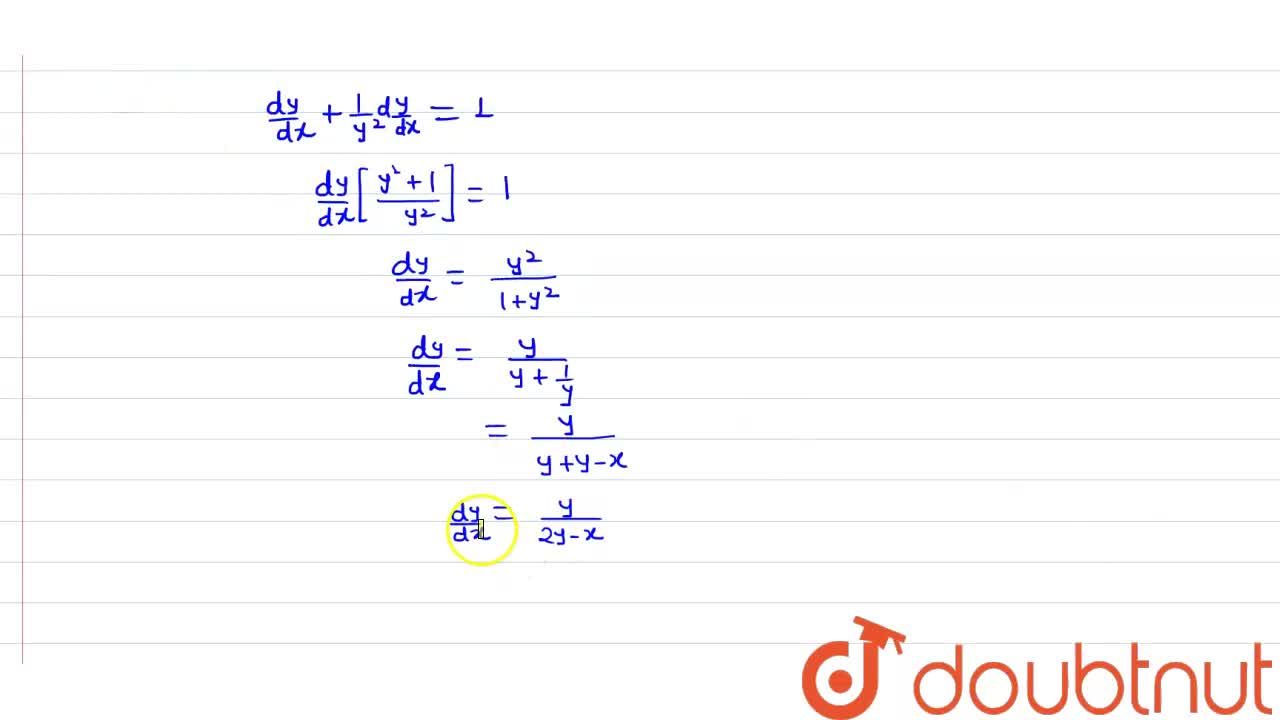



If Y X 1 X 1 X 1 X Dot Prove That Dy Dx Y 2y X
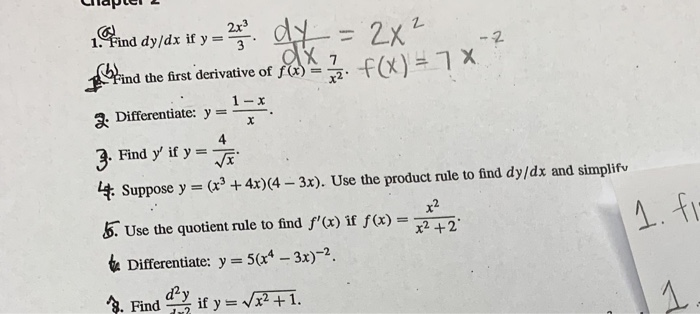



Solved 2 Find Dy Dx If Y 3 Ind The First Derivative Of Chegg Com




Find Dy Dx If Y X Cot 1 X Y Brainly In



If Y X 1 X 2 N Then Show That 1 X 2 D 2y Dx 2 X Dy Dx N 2y Sarthaks Econnect Largest Online Education Community
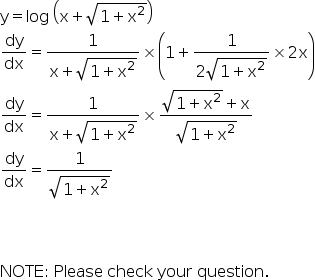



If Y Log X 1 X2 1 2 Prove That Dy Dx 1 Log X 1 X2 1 2 1 1 X2 1 2 Mathematics Topperlearning Com Qsw6n0xx




If Y X Sin Y Prove That X Dy Dx Y 1 X Cos Y Mathematics Topperlearning Com Tz9vph66




If Y X 2 2x 3x 4 Then Find Dy Dx Youtube
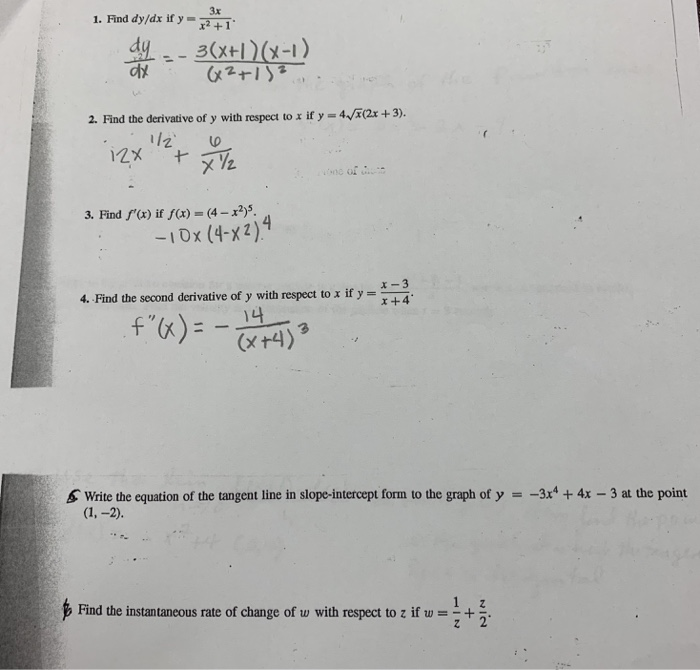



Solved 2 Find Dy Dx If Y 3 Ind The First Derivative Of Chegg Com




If Y Root Of 1 X 1 X Then Prove That 1 X 2 Dy Dx Y 0 Brainly In
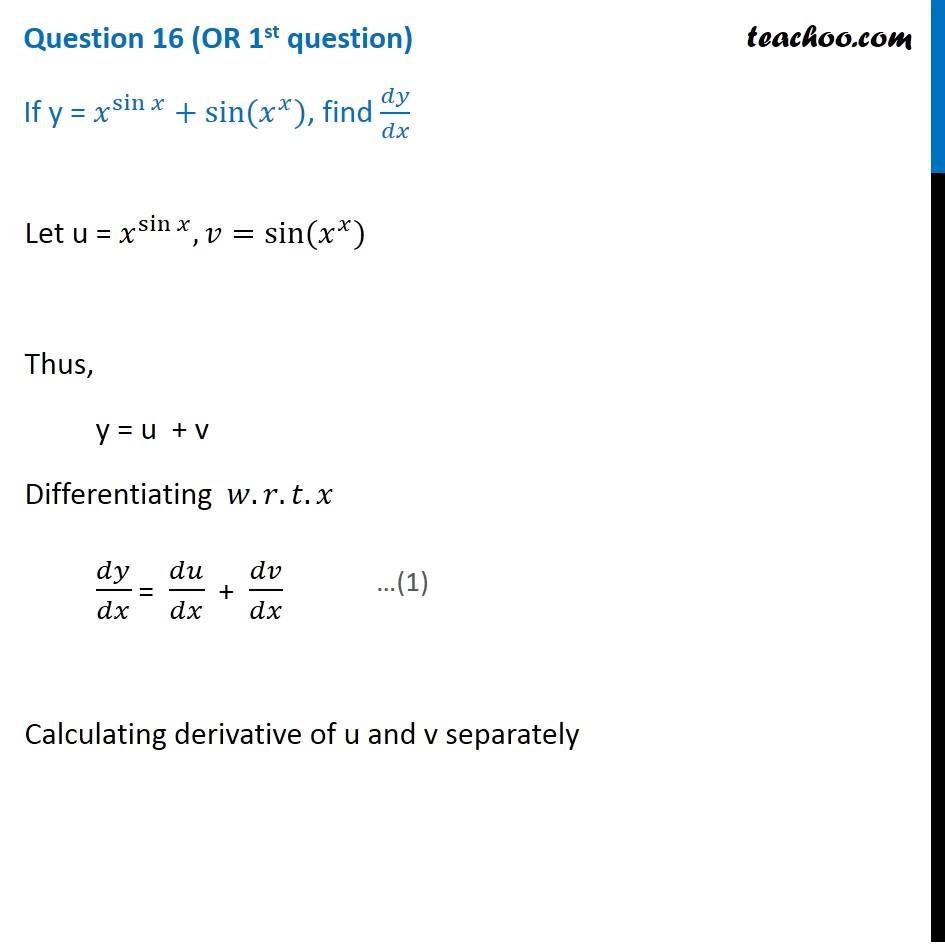



If Y X Sin X Sin X X Find Dy Dx Teachoo Cbse Class 12 Sam
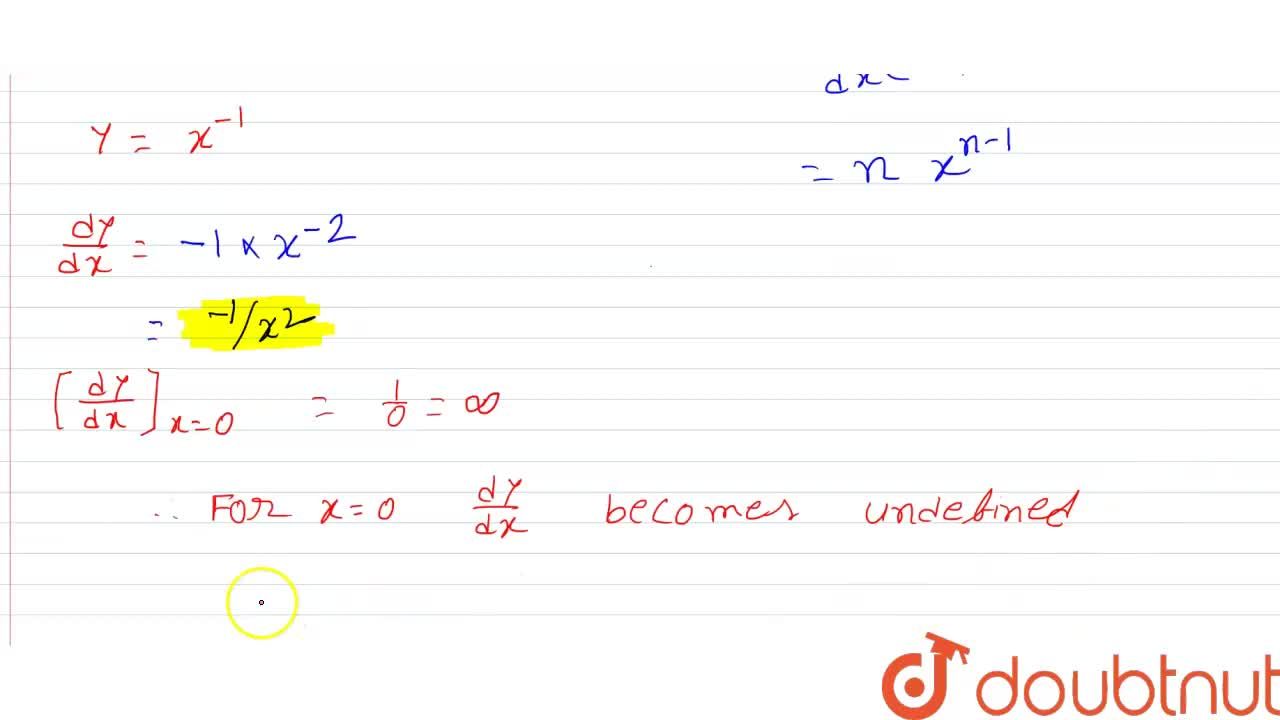



If Y 1 X Find Dy Dx Also Find The Value Of X For Which Dy Dx Becomes Undefined




If Y Sin 2tan 1 1 X 1 X 1 2 Then Find Dy Dx And If 5 X 5 Y 5 X Y Then Prove That Dy Dx 5 Y X 0 Mathematics Topperlearning Com Q011rcnn




Misc 14 Find Particular Solution X 1 Dy Dx 2e Y 1



0 件のコメント:
コメントを投稿